Gabriel Comanescu: GSP Getting Where No Other Romanian Company Has Gone Before
GSP’s track record, projects and future plans are the basis of this interview with the group’s founder Gabriel Comanescu.
Grup Servicii Petroliere (GSP) is the first holding built on 100% Romanian capital which delivers offshore construction and offshore drilling services. The group holds the most important position in the region, on this particular sector of industrial activities.
In 2021, GSP continues to perform well as one of the most profitable industrial companies in Romania and in the region. GSP’s track record, projects and future plans are the basis of the interview we had the pleasure to take with the group’s founder, President & CEO, Mr. Gabriel Comanescu.
GSP owns and operates, in an integrated system, especially designed to support the whole of offshore industrial activities. Starting from design and engineering, fabrication, logistics and up until installation and operation. GSP reunites the human and technical resources necessary to develop EPCI projects of major complexity.
The group has a strong fleet of support and construction vessels, together with drilling rigs designed for both shallow and deep water. In GSP’s ownership and operation we find the biggest sea crane in the Black Sea. GSP Neptun has a lifting capacity of 1800 tons.
GSP is one of the most important entrepreneurial endeavours in Romania. This year the group will reach its 18th year of existence. In 2011 the Romanian company was rated 2nd in the Deliotte Top 500 for Central Europe.
After graduating from “Mircea cel Batran” Naval Academy in 1989, Gabriel Comanescu takes is first career steps at ROMLINE, enrolling in the Romanian civil Navy. At just 25, he was already leading the first oil service company in post 89’ Romania. He rapidly becomes one of the most successful businessmen in the industrial landscape of Romania and uses this experience to lay the foundation of GSP (Grup Servicii Petroliere), in 2003.
Just five years after its foundation, the Romanian company wins important offshore construction projects and offshore drilling campaigns in the whole world. This, in turn, raises the reputation of GSP and exponentially grows its client portfolio with some of the biggest names in the Oil & Gas business: ExxonMobil, TPAO, Gazprom, Japex, Siemens or Wintershall, just to name a few.
The rest is history as they say. Indeed, GSP has a certain historic relevance as the first Romanian, privately owned, company to reach a portfolio of over 70 successfully completed drilling projects, hundreds of km of underwater pipes and umbilicals laid and with major complexity EPCI projects that surpass 1 billion euros in value.
Dear Mr. Comanescu, how did GSP start its history, to date? What were the premises upon which GSP was founded and what are the worthy to mention milestones on the road so far?
Gabriel Comanescu: GSP is turning 18 this year. Chronologically, we could say we are reaching adulthood, but, in reality, we passed the maturity test long ago, when together with a group of ambitious people we founded what was to become the most important and successful offshore construction and drilling group in the Black Sea region. GSP was built on a solid foundation of expertise and capital, both of which are 100% Romanian. I like to say that Grup Servicii Petroliere represents the sum of Romanian expertise in an industry that requires highly specialized experts, minute organizing and finally a lot of courage and endurance.
GSP is a company of “firsts”. I say this with a dose of national pride: we are the first and only ones that managed to reach this level. The Black Sea was just the first step. It is here that we proved our capabilities by installing hundreds of km of underwater pipes, for world renowned clients.
With this “business card” in our wallets we managed to get where no other Romanian company has gone before. We drilled in almost all the world’s oceans. We constructed large scale integrated projects going through all stages, from design and engineering through fabrication and installation, because our plan has followed a simple set of principles which I can summarize, we have to be the best at what we do. What we do is offshore drilling, onshore and offshore construction and Oil & Gas Services. Thus, we became the biggest deliverer of turnkey projects in the region, with a solid reputation, built on both quality of works and the knowhow of our engineers and representatives.
Twelve years ago, we were opening our first office abroad, in Rotterdam, Netherlands, following a set of large-scale projects such as DLS. Over 165 km of underwater gas pipes were installed on the bed of the Black Sea. Another example is the construction and expansion of the Akcakoca offshore gas field. GSP fabricated, transported and installed the biggest Jacket in the Black Sea, a detail not very many people know.
Time makes it impossible to go through all relevant milestones. Suffice to say, that by looking at our world footprint you will find GSP in almost all regions where offshore construction, offshore drilling, surveying and other Oil & Gas services were needed. Whether we are talking about the North Sea, the Gulf of Mexico or West Africa, be sure you will find GSP presence in relevant project for the region.
The last three years, along with international project, GSP has been building in Romania, for the American company Black Sea Oil and Gas, the first new offshore gas development project in the last 34 years. We are the main contractor for this work that involves complex offshore and onshore construction.
Also, the offshore operations for OMV Petrom are being handled, in an integrated contract, by GSP. We signed this contract in 2019. Our experience is intensively used in Romania, which is a matter of great honour and responsibility for us.
What are the major objectives upon which your business strategy is focusing?
Gabriel Comanescu: Development, dynamics and adaptation. Three words that express very well GSP’s business attitude. Although most of your readers know this, I would like to once again point out that the Oil & Gas market is highly volatile. A sure thing is hard to obtain in this business. Here you need intelligence and the capacity to adapt. Maybe more than other industrial sectors, in Oil & Gas you have longer investment periods, in which the project eats up resources and time. This is where you need good planning and development. The global pandemic has once again taught us that the only thing you can be certain about is change. This is where you need to quickly adapt, to dynamically evolve.
As opposed to other sector specific companies that reduced, some even drastically, personnel, development and investments, GSP did the opposite. We raised our workforce, we raised up investment budgets and took on new challenges. More than 2.6 thousand people are working in some form or other, for the extended GSP Group. We invested in a new management structure, we called in professionals, and distinguished experts in their respective fields. We have also grown our technical capital because we want to be able to successfully handle all projects, as we time and time again said, of high complexity and difficulty.
Increased interest of international oil and gas operators in the Black Sea has caused a recent boost of activities in this segment. Let’s not forget that Black Sea hydrocarbon discoveries could also increase political influence. What are Romania’s strengths in this context and how can Black Sea hydrocarbon exploration and production projects contribute to the development of Romanian economy?
Gabriel Comanescu: The future of energy, regionally, is in the Black Sea. Whether we are talking about gas, a transition fuel towards renewable energy, or wind potential, it becomes elementary that the Black Sea, and especially the Romanian economic zone will act as a powerful magnet for big investments in energy.
Studies show approximately 170 billion cm, momentarily captive beneath the seabed of the Black Sea. These are however some of the most pessimistic studies out there. Speaking from my experience I could dare to say that a lot more gas is hiding down there, more than some people believe. The economic potential is huge, on both medium and long terms. We are talking about a continuous investment for a period of at least 20 years. A stable investment. Specialized studies predict an economic contribution of 10 billion dollars/year. This is from direct and indirect contributions. At least 15.000 jobs will be created. New jobs the offshore sector. A brief calculation shows us that at the end of the project all contributions to the national economy could go up as far as 100 billion dollars. Maybe more.
Economic growth, social benefits and jobs, all problems with one simple solution: invest in the offshore gas development of Neptun Deep. Extract gas from underneath the Black Sea, put it to use, and give one more powerful engine to the economy.
Let’s also talk about the huge offshore wind potential of the Black Sea. The World Bank made public reference to a study that shows over 70GW of available power in the immediate vicinity of the Romanian Black Sea shores. Both fixed and floating structures. I can rhetorically ask how exactly did Romania became an importer of electricity. We are in a deficit of at least 2000 MW of power that could be easily balanced by only a fraction of our offshore wind potential.
These are just a few reasons why the European Commission recognized the economic potential of the Black Sea. I believe in the economic and political viability of energy projects in Romania. The energy independence we have so long been hearing about cannot not be attained without Romania’s resources. The decisive support for Romanian offshore projects could be a powerful political statement for our country. It is an action that can boost our economic power to such a degree as to significantly reduce imbalances between Est and West. Time is however our biggest enemy when it comes to developing historic new projects in the offshore of the Black Sea.
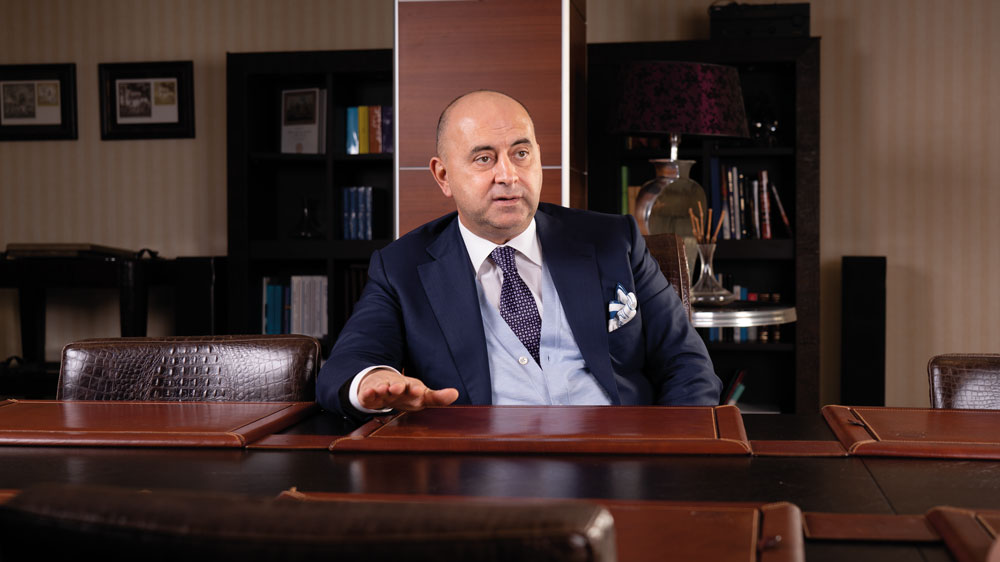
In September 2020, you announced, with Black Sea Oil and Gas (BSOG), the start of works at the submarine pipeline within the Midia Gas Development (MGD) Project, mentioning that the first Black Sea gas, exploited by BSOG, would enter the National Transmission System in mid-2021. What is the status of works at this project?
Gabriel Comanescu: In September we publicly announced the beginning of work for the HDD stage of the project. Horizontal Directional Drilling. More precisely we managed, in short time after the inaugural proceedings, to successfully complete this important stage. It was a complex operation, very technical. Today the subsea pipe of over 120 km is installed. The jacket for the Ana well is transported on site, offshore, and installed using four large scale piles. The first well will be shortly drilled. We registered important progress, in spite of the pandemic COVID 19 context. Nothing could come between us and our objectives and I have full confidence we will continue in an accelerated tempo. I fully maintain my previous statement. 2021 is the year that we will bring the first new gas molecules from offshore Black Sea to the National Transport System. Drilling will begin, if weather permits, in May.
What are the international markets where GSP operates and the most important domestic and foreign partners of the company? What are the programs/projects?
Gabriel Comanescu: We can say that we are also working at extending our development abroad. Today we are looking forward to working and constructing projects in the Mediterranean and Baltic Sea. Other regions we are active in are the North of Africa and the Middle East. These examples include projects that just now are being revitalized after the COVID-19 pandemic toned down.
What is the situation of the labour force within the company? Are young people still interested in the oil and gas sector?
Gabriel Comanescu: Our employee number grew steadily in the last years, but especially in 2020. In spite of the fact that we found ourselves in the middle of a worldwide pandemic, great numbers of highly specializes Romanian experts returned to the country. We saw this opportunity and acted to access this important resource. Workforce naturally “gravitates” around companies that have ongoing projects, and we are such a company. We did not stop work for the overwhelming majority of our projects. We “injected” GSP with new blood. Young visionary managers joined our teams led by people with decades of operational experience in the field. Our Sharjah (UAE) division for engineering is led by a manager with 37 years’ experience in offshore construction all over the world. Take this as an example, but keep in mind it is not a singular case.
The GSP team is a good and natural mix of Romanians and expats, of young professionals and already distinguished experts. Even if we are born in Romania, we have to admit that we successfully implemented the best practices in the Oil & Gas business. It is a natural evolution owed mainly to the fact that we spent a lot of time in international projects developed with big league, world renowned partners.
We are constantly investing in specialized workforce. I think this is an opportune moment to introduce you to our apprenticeship program. As a pilot project we made available professional training positions for welders, electricians and locksmiths. The program is dedicated and developed in rural Constanta. This is where, mostly for social reasons, people did not receive a formal education or training of any kind. We are trying to change this by giving apprentices a job, a wage, training, a place to stay and three meals a day. All we ask in return is they are serious about learning the tools of the trade, and that they show they want to become better at what they do. If the apprentices will be employed in further GSP projects and will develop a career in GSP for us it’s a strong win. We get the satisfaction of giving people without true horizons a better future, but we also gain the benefit of building up the professional workforce in Constanta. If the program picks up, we can talk about further developing it in other parts of the country.
At the same time, for student engineers, sailors or economists, we develop yearly paid internship programs. GSP is, for these young professionals, an opportunity to learn on the job, using the best practices I talked about earlier. It would be a pity for all that experience and expertise not to be passed on to new generations.
Do you consider company’s expansion in other areas of activity in the medium and long term? What will GSP’s priorities be in this period?
Gabriel Comanescu: The extended GSP group covers a wide spread of services. We are constantly developing and adapting because we learned that adaptation, especially in dire times, is indispensable for survival. Now, if we focus on the trends of development in energy, it is impossible to ignore the major shift, in Europe, but also other parts of the world, towards Green Energy. Green Deal is putting forward ambitious medium- and long-term targets. The degree in which the transition into green, 100% non-pollutant energy systems is made, differs across the world. However, there is a constant. Natural gas is the new transition fuel that has to replace coal and ensure a smooth transition towards green.
The European Commission repeatedly stated that natural gases will permit a system wide adaptation to new renewable energy.
This is the basis on which GSP Power is formed. Our new energy division aims to implement gas-to-power in Romania. We have gas reserves and the technical capacity to exploit them, but we don’t have enough electrical power in the system. From net exporter of electricity Romania, with a formidable mix of sources, reached a deficit of roughly 1.5 MW/h in 2019. The gap widened in 2020, when Romania imported with 2.8 MW/h more that we exported. We import from Ukraine and Hungary more that in the last years. What is missing? A reliable source of energy that offers flexibility to the system. This is, in broad strokes, gas-to-power.
Halanga is our maiden project for GSP Power, in Drobeta Turnu Severin. This is important because it’s the first project in Romania that also encompasses a solar powered component that works together with the gas generation capabilities. The 50MW solar farm will replace a highly polluting ash and gravel deposit. Coal residues have been piling up on almost 100 acres in the vicinity of the power plant. At the slightest sign of wind over 50.000 households are being polluted. When our project will be ready this pollution generator will have been replaced by a clean energy solar farm.
We are interested in finding economically viable solutions that can truly contribute in the way that Romania perceives energy generation. For instance, an offshore windfarm in the Black Sea. What would it mean for the local economy? The potential is there. The World Bank sees it, also does the EU. We are the group with the biggest experience in offshore construction, at least regionally. We can also notice a working recipe successfully applied by other offshore drilling and construction companies that profile themselves doing work for renewables.
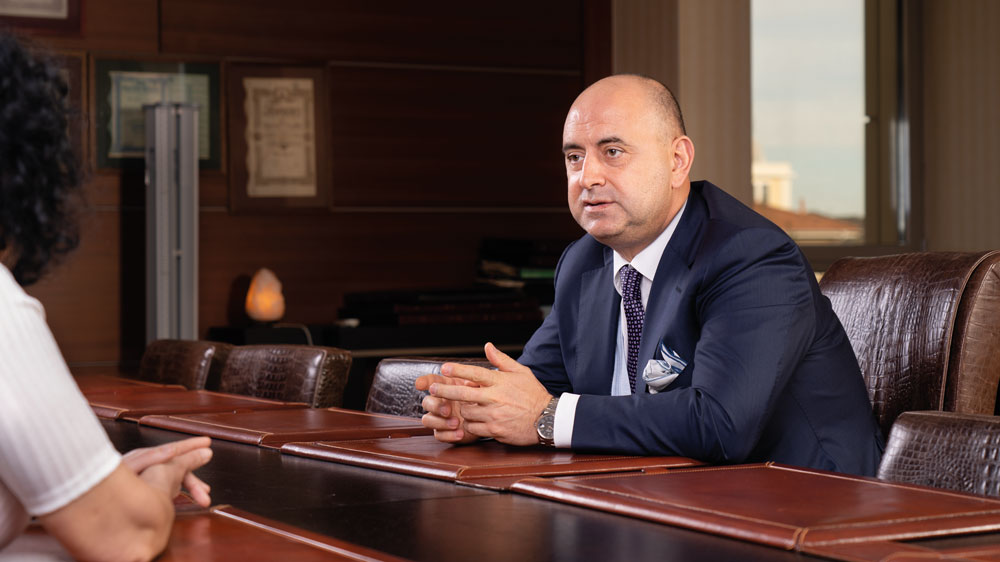
What challenges does the current social and economic crisis caused by COVID 19 bring for GSP and how do you plan to address them?
Gabriel Comanescu: We can narrow down business views in the pandemic in two big choices. Either you understand the change around you and adapt your business model to the new reality, or you give up on change and refuse to understand the need to adapt to the unforeseeable. You and your readers can probably guess which choice we made at GSP. Just to put things into context I’m going to tell you a short story. In 2015-2016 the Oil & Gas world registered the biggest, most acute, crisis in decades. Oil dropped with over 70% in a matter of months, reaching scores of under USD 36/bbl. Way too low to support investments and development, especially in offshore. As a direct result a great deal of the offshore service sector succumbed under pressure. Seadrill, Weatherford, Paragon Offshore, Hercules Offshore put in for Article 11. Declaring their insolvency. GSP survived, with no small sacrifices, those years of crisis. It took long to recover and recuperate what was lost in 2015, but we did it because myself and my team were capable and prepared to efficiently handle a crisis. We oriented ourselves toward clear objectives, we rationalized resources and, very important, we always respected our engagements towards our clients.
The COVID-19 crisis was surprising but found GSP ready and prepared. If you remember, the start of 2020 found GSP successfully handing the Queen Hind refloat operations. The biological load was hazardous, and our teams had to take all safety precautions. Equipment, medical personnel, medications and treatments and so forward. In Oil & Gas safety in paramount. We hold an immaculate Health and Safety track record.
Rolling back the clock one year we see a lot of hysteria surrounding COVID-19. Crisis in not correctly handled with hysteria, but with steadiness, calm and forward thinking. Let me walk you through what we did in trying to foresee where the pandemic was heading. We listened to OMS advice and acted on the principle “test, test and test some more”. We elaborated and applied throughout the group a set of rules to prevent and fight the pandemic. We strengthened the GSP medical team. We recurrently tested GSP employees, and especially offshore personnel. We adapted; I’d say very well to the situation. When Romania was struggling with over 10 thousand cases/day GSP did not interrupt work, not even for one day.
We acquired tests. We acted in partnership with the Public Health Department, and other public authorities. We donated 15.000 tests destined for medical doctors and nurses in Constanta. Test ware scarce to come across in spring 2020. We contributed with donations to hospitals. We tried to act responsibly not only for our employees, but also for the environments they come from.
As the crisis got worse GSP changed the supplier of Medical Evacuation by air. I believe we were the only ones that could safely evacuate COVID 19 cases via helicopter using pressurized cabins, indispensable for serious situations.
Together with HSEQ professionals we took the decision to ensure, for all offshore personnel, a buffer period before shipping out. For five days each and every offshore worker was preventively isolated in a hotel and tested for any traces of COVID 19. Our company ensured PCR testing, rapid testing, antigen testing and antibody testing. The great majority of GSP employees and collaborators understood the gravity of the situation and appreciated the support the company gave them, and their families.
Now, looking back, I don’t think I would have acted differently. Work was not suspended; people are being kept safe and we continue to do the best we can to keep things under control. Now, we are building three infirmaries destined for our operational bases, in order to have the possibility, together with public authorities, to administer vaccines in optimal and safe conditions.
Now we clearly notice a rise in optimism, after the rolling out of the vaccine. The market is once again balancing itself and we see, after one year, an equilibrium that will give power to further investments.
How do you assess the evolution of the oil and gas market for the following years? Do you believe in a strong recovery of investment in this area?
Gabriel Comanescu: Crisis in not new in Oil & Gas. As I said before, the market works in specific cycles. In 2015 the crisis was much more profound. Investments crashed, thus oil services capsized. Coming back to 2020, the market saw a double negative impact. The drop in demand was doubled by a global oil price war. This gave way to a historic drop of prices, under zero. It suddenly became more expensive to keep oil than to give it away for free. Happily, this was short lived. Just an anomaly. Prices are now at an ever-higher level that they were before the pandemic. Now there are talks of oil reaching USD 100/bbl.
COVID 19 came at a comeback moment for Oil & Gas. After five years of crisis the market was just recovering. The proverbial light at the end of the tunnel was visible. However, fate put on pause a growing market trend, investments, trust altogether in new projects.
Now, regionally I can stake on a powerful comeback of the market. We can count on a rising confidence in the profitability of major new projects. Globally, along with the massive reduction of the number of COVID 19 cases, along with the lifting of lockdown measures and the rise of demand for energy things will naturally come back to normal. This can, in turn, bring successive growth to oil service market, to offshore construction and offshore drilling. The investment prudency is still there, but I am sure companies with vision will take the chance to invest and develop a positive investment strategy.
We can find a concluding argument for this, once again, in the Black Sea. Ukraine announces a new partnership for offshore development. Tukey is in search of partners for big offshore development projects. Bulgaria announces investments in their perimeters, such as Han-Asparuh. The level and timing of these investments is determined by trust. If the level of trust in the viability of the market rises, we shall see this strongly reflected in investments, new projects and developments.


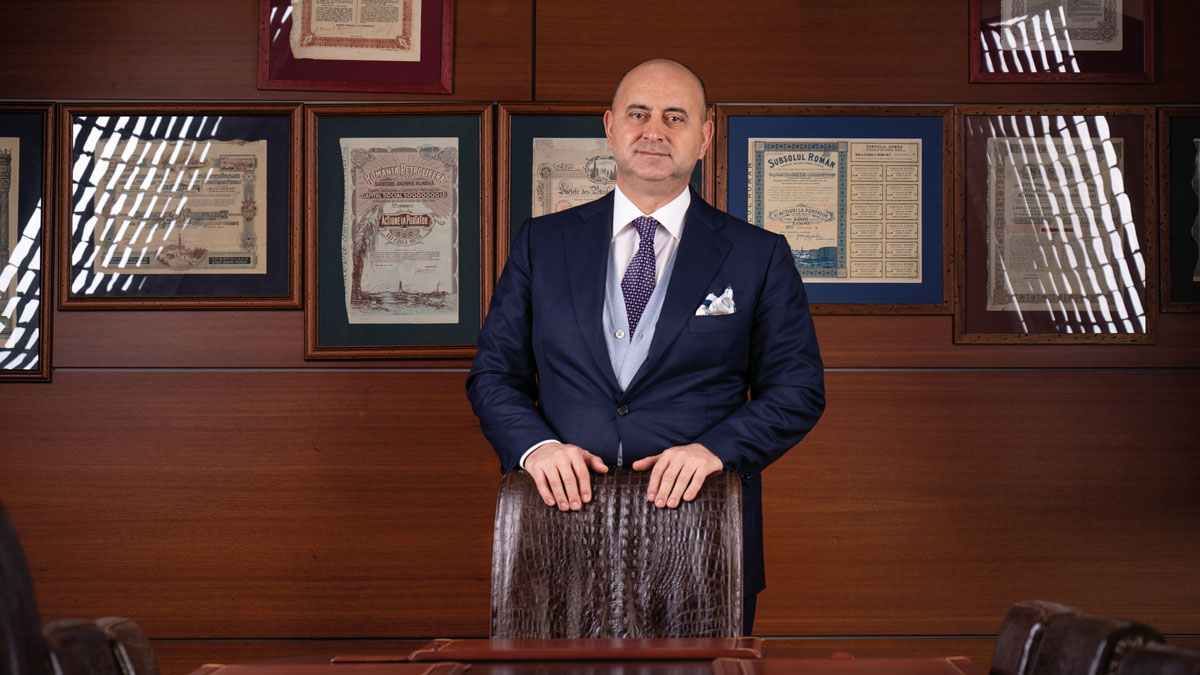

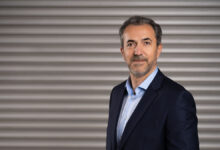


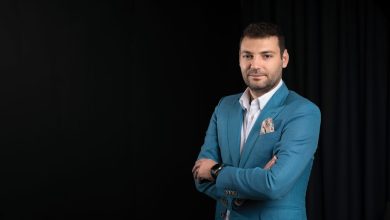
9 Comments